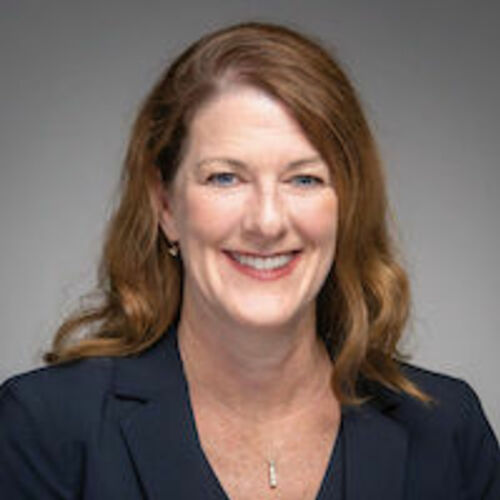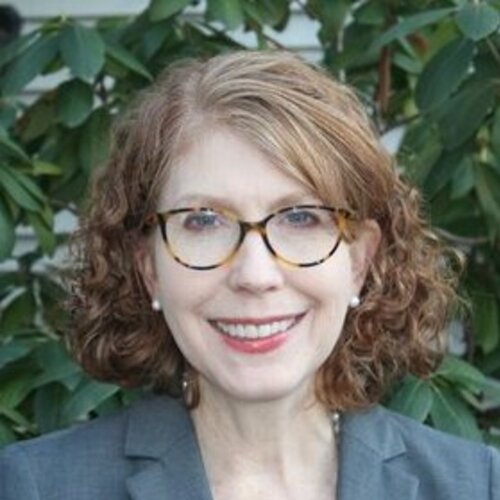The Body and Beyond: Human Sexuality for Young People with Intellectual and Developmental Disabilities from a Catholic Perspective
Next Session: Aug 26, 2024
From a Catholic perspective, human sexuality is understood as being more than biology and reproduction. When considered in its fullness, human sexuality communicates both God’s love and plan for the human person. All young people then, especially those with special needs, benefit from “Sex Ed.” In this course, parents, ministers and teachers who care for individuals with intellectual and developmental disabilities will gain useful information that equips them to provide important education in human sexuality. It offers an overview of the scope and sequence of a comprehensive human sexuality program (including, vocation, anatomy, reproduction, relationships, hygiene, and personal safety), suggests practical pedagogical approaches, points out natural connections to the Catholic faith, and explores moral and ethical issues that are unique to individuals with IDD.
Some of the questions explored in the course include:
- How does the Church understand sexuality? Why is this important? Especially for those with intellectual and developmental disabilities (IDD)?
- Do people with IDD really need Sex Ed? Won’t this create more problems than it solves?
- Why isn’t education about human sexuality best addressed in a classroom setting? Why is it more appropriate when offered in an individualized manner and from a Catholic perspective?
- What topics are important to address in education about human sexuality for individuals with IDD? When? Why?
- What are the best methods for offering Sex Ed to individuals with IDD?
Church ministers who complete the course successfully will receive FREE access to the video lectures and a facilitator’s guide to use for implementing them at the local level.
Course Goals:
- Alert course participants (i.e., parents, teachers, and ministers) about the importance of comprehensive human sexuality education for young people with IDD from a Catholic perspective,
- Equip participants with a recognition of what human sexuality education entails and how it might be addressed within their individual contexts, and
- Foster a community concerned about the support of young people with IDD that can share ideas and resources with one another.
Course Content
Unit 1: Why Human Sexuality Education Matters for Individuals with Intellectual and Developmental Disabilities & A Catholic Understanding of Human Sexuality
Unit 2: Caring About Individuals With IDD = Caring About Quality Sex Ed
Unit 3: Taking care of the gift of our bodies: Hygiene
Unit 4: How God Created Us; Addressing Physiology and Reproduction with IDDs within a life-long, Catholic framework
Unit 5: God’s plan for us: Relationships
Unit 6: God’s care for us: Ensuring safety and protection
Course Format
- Seven weeks in duration, with one week for orientation.
- Typically 15-20 students in each course.
- All material provided online.
- Written assignments (200-250 words) optional.
- Facilitator-moderated Zoom sessions with students in course.
Participation Requirements
- View unit lectures (45 minutes).
- Participate in at least 4 scheduled Zoom sessions throughout the course.
- Complete the course evaluation.
- Optional Learning Experiences (These are also required for those seeking a certificate of completion).
- Explore short supplemental materials.
- Participate in the class discussion using the Forums area: post at least 2 comments, questions, or responses per unit.
- Write 2-3 paragraphs in response to the assignment in each unit.
Time Expectations
1 to 3 hours a week, depending on your learning style, reason for taking the course, and schedule.
Course Certificate
A certificate of completion awarding 21 contact hours will be sent upon completion of all course requirements as well as the optional activities.

Dr. Clare Kilbane
Clare Kilbane, Ph.D. is a Professor of the Practice at the University of Notre Dame affiliated with the McGrath Institute for Church Life. She has a wide-range of expertise across a variety of educational areas. Clare has worked as a classroom teacher, teacher educator, curriculum developer, and media producer. Additionally, she has produced many books, articles, and other creative works. At the McGrath Institute, Clare educates theology teachers, performs research and development for its online theology program, and serves as the Learning Designer for much of its educational programming. Clare and her husband Dennis are the parents of a college-aged daughter and live in South Bend, Indiana

Dr. Mary O’Callaghan
Mary O’Callaghan, Ph.D., is a developmental psychologist and teaches as a Faculty Fellow in the Master of Autism Studies at St. Mary’s College (Notre Dame, IN) and an adjunct instructor for the Mendoza Business College (Notre Dame, IN). She is a Public Policy Fellow for the Notre Dame de Nicola Center for Ethics and Culture as well as a member of the National Catholic Partnership on Disability's Governance Board. Mary and her husband have 5 children, including her son Tommy, 15, who has Down syndrome and Autism.